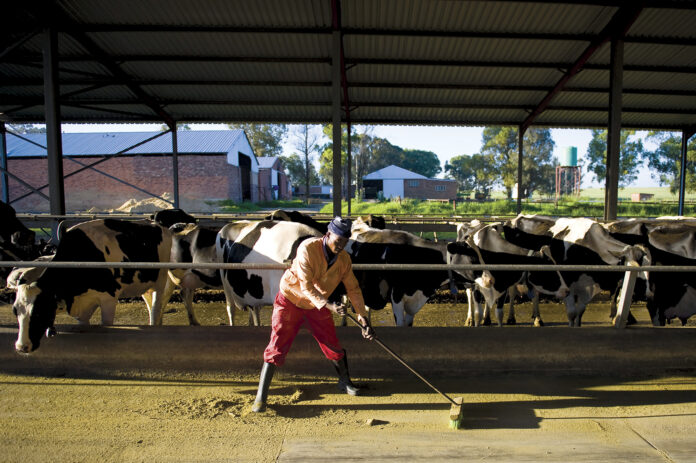Entrepreneur Ntuthuko Shezi has revealed that when he started his panel beating business he was pained to see skilled black panel beaters flatly refusing to work for him.
Shezi is the founder of Scratch Mobile and Livestock Wealth.
The black panel beaters declined to work for him despite promises that they would earn higher wages.
This happened when Shezi launched Scratch Mobile, a business, which repaired car scratches within 60 minutes, in 2006.
These titbits are contained in a recently released book, “Rising From the Township: Inspiring Stories of South African Entrepreneurs”.
Shezi narrates how he launched the business after he encountered numerous poor service experiences relating to car insurance and panel beaters.
He launched the business with his trusted high school friend. “We had all the equipment ready but finding staff proved to be a challenge. Many experienced workers preferred to stay with the established white-owned companies they knew rather than join a black-owned business like ours. We struggled to recruit; despite 20% equity, people were hesitant to trust us as employers.”
They eventually hired a Jaguar employee part-time.
“The story of the man who helped us on weekends is heartbreaking. He continues to work at Jaguar, earning a R10 000 monthly salary, even after two decades.
“His journey began when he and his brother fixed the owner’s car in 2001. Impressed, the owner offered them jobs, leading to their involvement in growing the business to own multiple Jaguar dealerships and a large panel-beating company.
“Despite starting from the ground up with this opportunity, the black man still struggles today, living hand to mouth in the Mzimhlophe hostel… all because he could not trust a black-owned business offering him 20% equity.”
Shezi says the idea of Livestock Wealth, was birthed from a desire to make farming available to everyone. The business allows investors to buy cattle while Shezi’s business looks after the animals.
“It was about creating a business model that could endure and make a real difference.”
They initially wanted to call the business Livestock Bank, where people could own cows on a shared farm, allowing multiple owners for a single herd managed centrally.
He rented a farm in Vryheid, where he operated Livestock Wealth. The farm owner, who showed the ropes on livestock, connected him to a cattle agent who assisted in sourcing cows.
“We decided to start with 40 cows ready to mate, each costing about R6 500. To fund the initial herd, I took a loan of R300 000 from Scratch Mobile.”
The business was also incubated by the Gauteng government’s Innovation Hub.
“We started with a very small but quite impactful team. The first person we brought on board was an agricultural graduate as part of our incubation programme, ensuring that we had expertise right from the start.
“We reached out to various stakeholders, including government departments like Land Reform, to gain support. The power of networking played a huge role in gaining international exposure and in the growth of Livestock Wealth,” he says.
“Alongside the wins, Livestock Wealth, from an idea to a commercial reality, was an undertaking filled with significant challenges. These hurdles tested our resolve but also provided valuable lessons. First, navigating the regulatory landscape was a complex process. Initially, the Financial Services Board stated it didn’t regulate cows. Our attempt at voluntary regulation was declined, leaving us to find other ways to ensure our business operated within a robust governance framework.
“Another hurdle was getting the media on board. We had to educate journalists about the convergence of agriculture and technology, simplifying the concept to make it accessible and engaging,” says Shezi.



